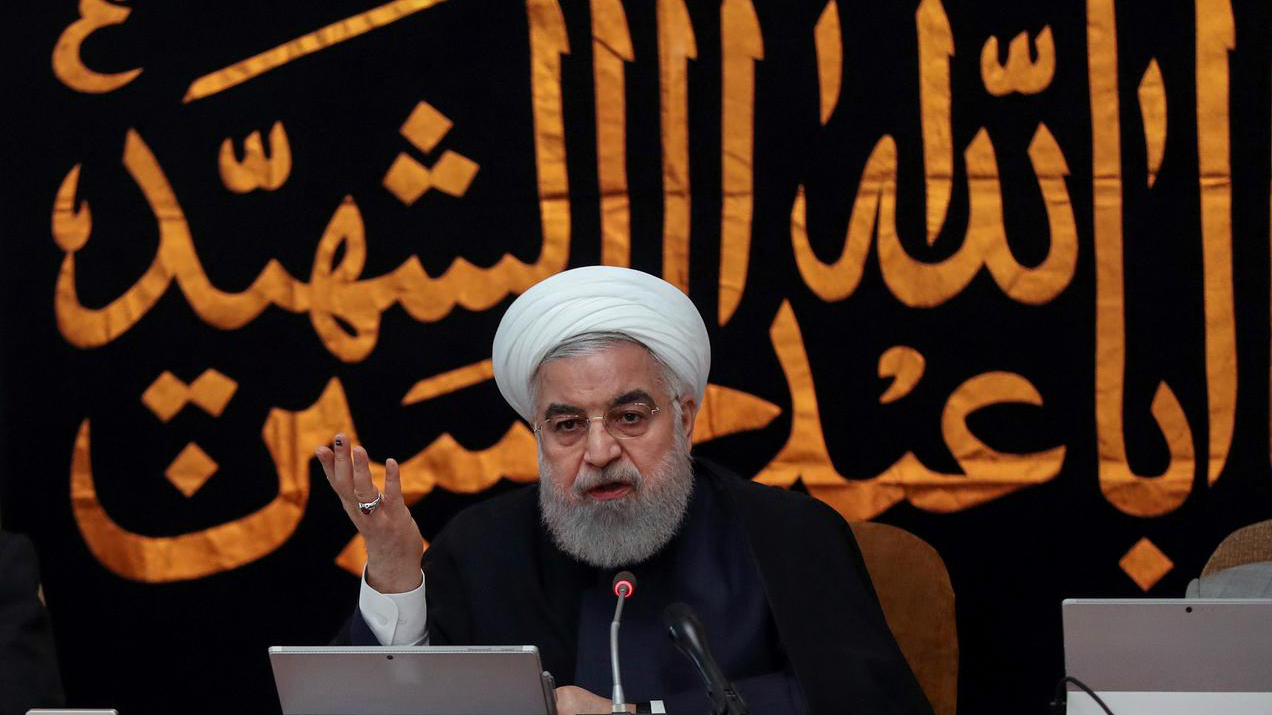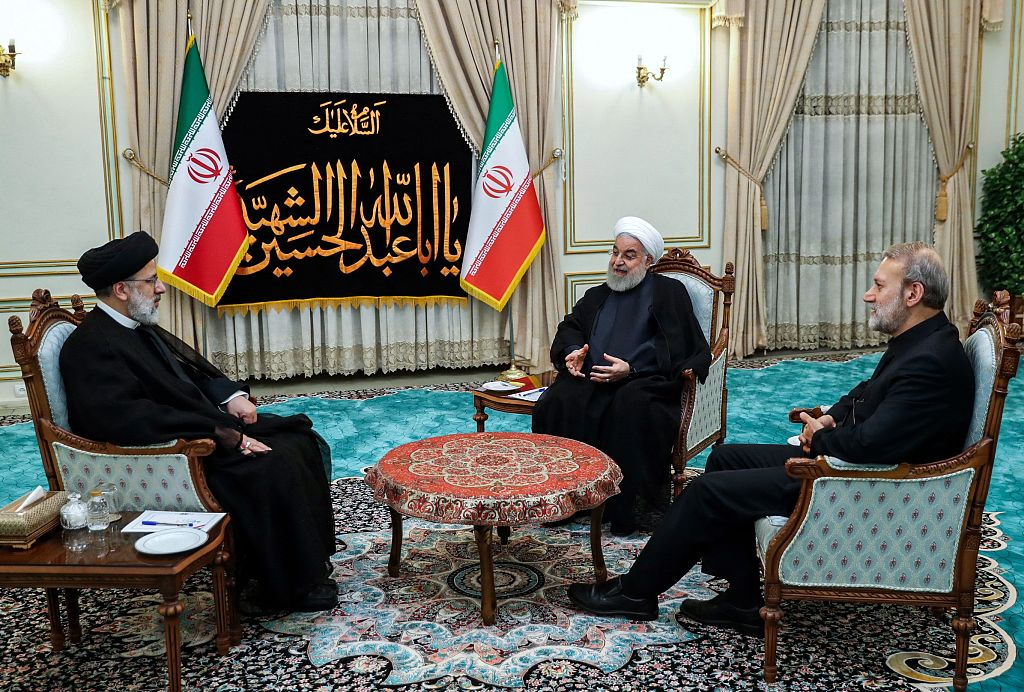

Iran on Wednesday said it would take another step away from a 2015 nuclear deal by starting to develop centrifuges to speed up its uranium enrichment but it also gave European powers two more months to try to save the multilateral pact.
In a televised address, Rouhani said Iran from Friday will begin developing centrifuges to speed up the enrichment of uranium, which can produce fuel for power plants or for atomic bombs, as the next step in reducing its nuclear commitments.
Under the accord, Iran was allowed to keep restricted quantities of first-generation centrifuges at two nuclear plants. The successful development of more advanced centrifuges would enable it to produce material for a potential nuclear bomb several times faster.
"From Friday, we will witness research and development on different kinds of centrifuges and new centrifuges and also whatever is needed for enriching uranium in an accelerated way," Rouhani said. "All limitations on our Research and Development will be lifted on Friday."
Iran says it is only enriching uranium to fuel nuclear power plants, but the United States has long suspected the program ultimately aims to produce weapons.
Since Washington's withdrawal from the pact Tehran has made two other moves in violation of the deal, although Iran says it still aims to save the agreement.

Iranian President Hassan Rouhani (C) meets with Iranian Judiciary Chief Ebrahim Raisi (L) and parliament speaker Ali Larijani (R) in Tehran, September 4, 2019. /VCG Photo
Rouhani has said Iran would take further measures by September 5 unless France and the other European signatories of the pact did more to protect Iran from the impact of the U.S. penalties, which have drastically reduced Iran's foreign oil sales.
"It is unlikely that we will reach a result with Europe by today or tomorrow... Europe will have another two months to fulfill its commitments," Rouhani said, according to state TV.
But Rouhani also said Iran's new measures will be "peaceful, under surveillance of the U.N. nuclear watchdog and reversible" if European powers keep their promises.
A French diplomatic source voiced regret at Iran's planned centrifuge development.
"It's not helpful," said the source. "We knew it wouldn't be... a bed of roses," he said, adding France would keep looking for a solution despite the cool U.S. reception.
Iranian officials, meanwhile, appeared to give a guarded welcome to a French proposal to save the pact by offering Iran about 15 billion U.S. dollars in credit lines until the end of the year if Tehran returned to full compliance.
The United States was cool to the idea but did not categorically reject it.
On Wednesday, Washington blacklisted what it called an "oil for terror" network of firms, ships and people it suspects are directed by Iran's Islamic Revolutionary Guard Corps (IRGC) with supplying Syria with oil worth hundreds of millions of dollars.
"We did sanctions today. There will be more sanctions coming. We can't make it any more clear that we are committed to this campaign of maximum pressure and we are not looking to grant any exceptions or waivers," Brian Hook, U.S. special representative for Iran, told reporters.
Washington has since renewed and intensified its sanctions, slashing Iran's crude oil sales by more than 80 percent.
Trump again said he was open to the possibility of meeting Rouhani but made clear he had no intention of easing sanctions.
(Cover: Iranian President Hassan Rouhani addresses a cabinet meeting in Tehran, Iran, September 4, 2019. /Reuters Photo)

Copyright © 2018 CGTN. Beijing ICP prepared NO.16065310-3
Copyright © 2018 CGTN. Beijing ICP prepared NO.16065310-3